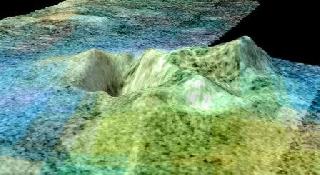
This image is based on data from NASA's Cassini spacecraft and shows a flyover of an area of Saturn's moon Titan known as Sotra Facula. Photo by NASA/JPL-Caltech/USGS/University of Arizona.
PASADENA, CALIFORNIA (BNS): NASA's Cassini spacecraft has found possible ice volcanoes on Saturn's moon Titan that are similar in shape to those on Earth that spew molten rock.
"When we look at our new 3-D map of Sotra Facula on Titan, we are struck by its resemblance to volcanoes like Mt. Etna in Italy, Laki in Iceland and even some small volcanic cones and flows near my hometown of Flagstaff," said Randolph Kirk, who led the 3-D mapping work.
Scientists have been debating for years whether ice volcanoes, also called cryovolcanoes, exist on ice-rich moons. Volcanoes on Jupiter's moon Io and Earth spew silicate lava.
At Sotra, however, cryovolcanism is the best explanation for two peaks more than 1,000 meters (3,000 feet) high with deep volcanic craters and finger-like flows, they said.
"This is the very best evidence, by far, for volcanic topography anywhere documented on an icy satellite," said Jeffrey Kargel, a planetary scientist at the University of Arizona, Tucson.
"It's possible the mountains are tectonic in origin, but the interpretation of cryovolcano is a much simpler, more consistent explanation."
Kirk and colleagues analyzed new Cassini radar images. His USGS group created the topographic map and 3-D flyover images of Sotra Facula.
Data from Cassini's visual and infrared mapping spectrometer revealed the lobed flows had a composition different from the surrounding surface.
Scientists have no evidence of current activity at Sotra, but they plan to monitor the area.
"Cryovolcanoes help explain the geological forces sculpting some of these exotic places in our solar system," said Linda Spilker, Cassini project scientist at NASA's Jet Propulsion Laboratory.
"At Titan, for instance, they explain how methane can be continually replenished in the atmosphere when the sun is constantly breaking that molecule down."
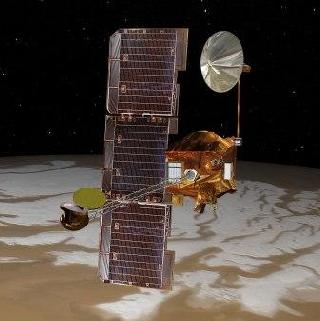 Previous Article
Previous Article Next Article
Next Article
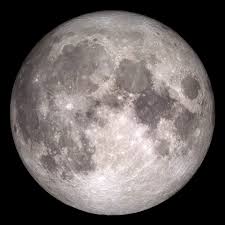
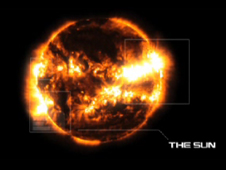
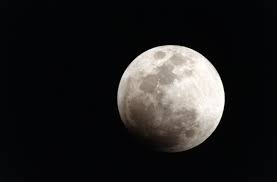

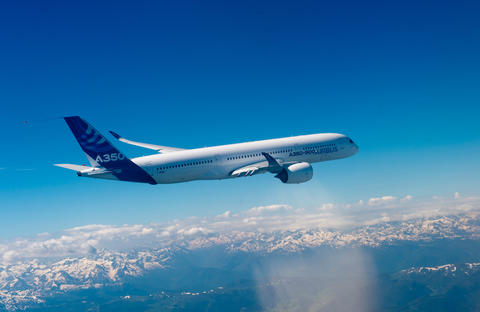







The Indian Air Force, in its flight trials evaluation report submitted before the Defence Ministry l..
view articleAn insight into the Medium Multi-Role Combat Aircraft competition...
view articleSky enthusiasts can now spot the International Space Station (ISS) commanded by Indian-American astr..
view article